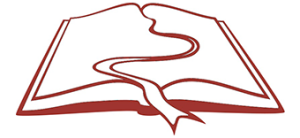What nobody tells you about being a good academic
A little apprehensively he approaches me as I am getting my coat after a workshop on Working Soft in research. Quietly he asks: “How do I improve my focus and manage my stress? Call me Chris. I work in this open office space with 12 fellow PhDs and Postdocs. When I read, write, or analyze data at my computer people often interrupt me. I like to help my colleagues out, but I also need to finish…”
Good Work for Academics
In a nutshell, this illustrates a central issue of the recently published book Goed Werk voor Academici (“Good Work for Academics”, Van den Brink, Scholten and Janssen 2016). This study illustrates how competition for research funds and permanent positions combined with publication pressure threaten academic professional honor. The book proceeds from the 3 criteria of Good Work defined by Gardner, Csikszentmihalyi, and Damon:
- Excellence: academic work meets high standards of craftsmanship and technical expertise (exact criteria vary across disciplines).
- Engagement: academics who use their personal talents in work that they value, have constructive relationships with colleagues, and sufficient career perspectives.
- Ethics: academics maintain high moral and ethical standards, work with integrity, and are responsive to the broader needs of society.
The intensity of the competition threatens collaboration, Van den Brink, Scholten and Janssen point out. Engaged and ethical academics, like Chris, who want to deliver excellent science and create a supportive community with their colleagues loose the ratrace against those who work strategically on their own ambitions. To the detriment of science, society, and researchers.
Chris has reason to be circumspect about his question. He feels inhibited: “I know some techniques that help me cope with stress and focus better, but that stuff is looked down on in my field. When I think of using those exercises in our open workspace I can almost hear my office mates snicker behind my back. I cannot afford to risk my career chances like that.”
The three E’s of Good Work are interconnected. How ethical is it to not use your full knowledge and potential to create better science? How can it be excellent craftsmanship if you do not build what you value personally and interpersonally?

To mitigate the rather bleak picture emerging here, Van den Brink, Scholten and Janssen refer to Aristotle in their conclusion. They paraphrase and attribute to him Socrates’ claim that “No one goes willingly toward the bad or what he believes to be bad.” In other words: if you really know what is good, you cannot act differently.
Three options:
Researchers do not know what is good. Not really. For their work, themselves, or society.
Socrates was mistaken.
Or both.
Your choice.
How can you tell if you are doing Good Work?
- Doing good work feels good. You concentrate on a difficult task, use all your skills, knowing what has to be done according to the standards of excellence of your craft. As a result you are likely to experience flow.
- You feel connected to the mission of your work. What is the mission that underpins your work? E.g. medicine is about healing the sick, and law about the pursuit of justice. What makes your work valuable to the broader needs of society or science?
- You are personally engaged. What role models do you admire and emulate? Why? When you look at yourself in the mirror, are you proud of the academic worker you see? And if all academics were like you, would you want to live and work in a society like that?
4 Steps towards good work in practice
1. Stop working hard. Work soft. Connect deeply with your work, your colleagues, yourself. Stay energized and inspired to think outside the box.
2. If you work in a shared or open office, you can create a sign that signals to your colleagues when you are doing work that requires deep concentration. E.g. when you have earplugs in, or when you put a red flag on your desk you are not to be disturbed. This way you can block a few hours every day for uninterrupted work while also being available to help your colleagues out. This can greatly boost you effectiveness. Of course you want to make sure you use your blocked time diligently and not deflect your colleagues all the time.
3. You can seek a private spot for your relaxation or mindfulness exercises if you do not feel like doing them publicly. The toilet is a good place. Or take a 10-30 minute walk around the building. After lunch is usually a great moment. Chances are nobody missed you when they were facebooking or surfing the web in their after-lunch dip. If you do get questions about your whereabouts when you come back refreshed and energized, you might infect them with your appetite for fresh air and movement…
4. You can organize a Working Soft workshop with a playful board game with your colleagues. This workshop creates awareness about the negative effects of stress and working hard on research work. It gives you and your colleagues useful handles to improve focus and effectiveness. After the workshop, it will be much easier to openly discuss working habits together. You can even support each-other in improving them. Interested? Email [email protected] for more information.

New post (What nobody tells you about being a good academic) has been published on Van Sijl Counseling & Training https://t.co/YXI5Yk85o8